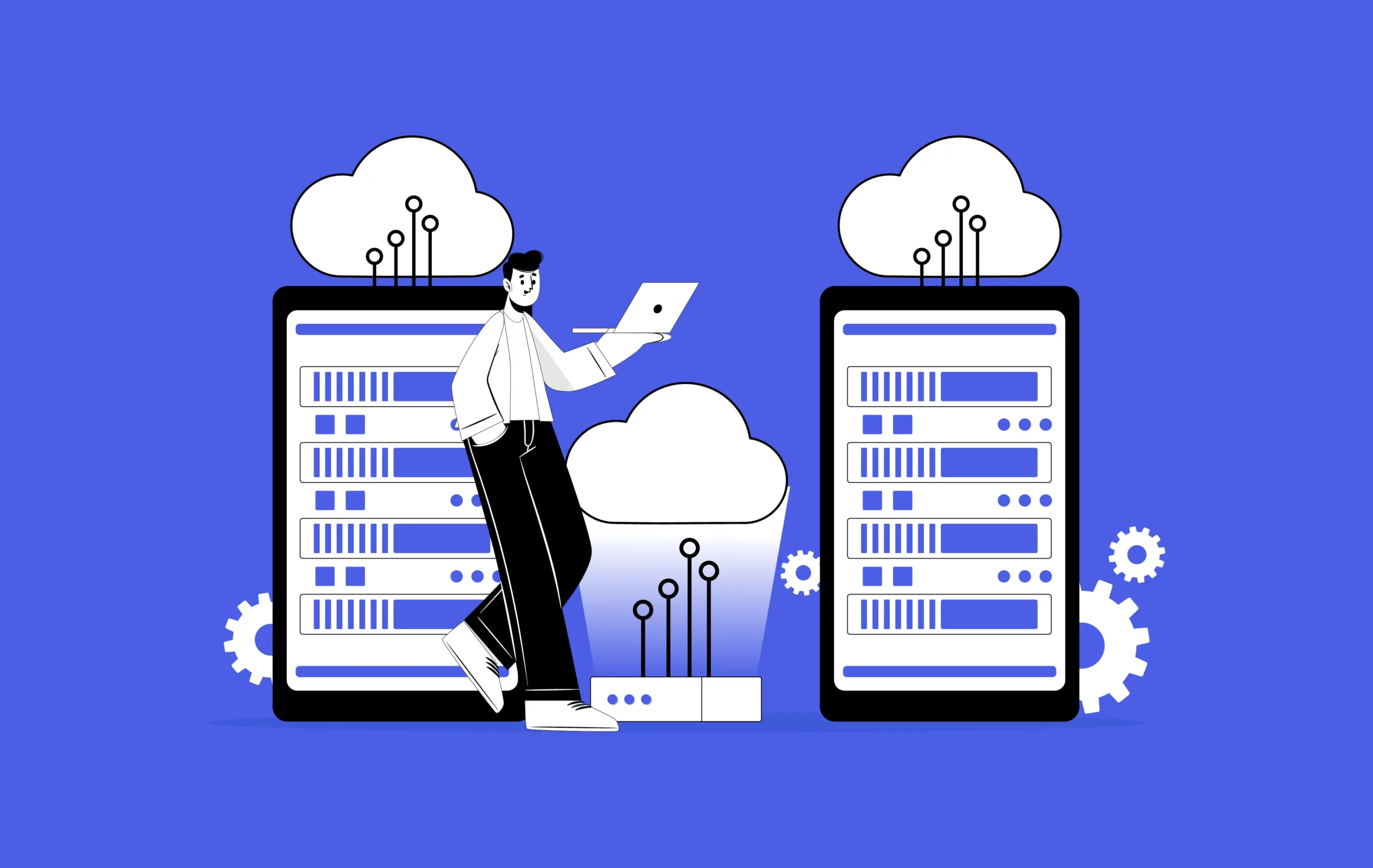- What is a POS System in a Restaurant?
- What is a Cloud-Based POS?
- What is a Legacy POS?
- Cloud POS vs Legacy POS System
- Data Storage:
- Accessibility:
- Pricing:
- Updates:
- Security:
- Capabilities for integration:
- Scalability:
- Hardware:
- Cloud POS vs Legacy POS - Which One to Choose?
- Benefits of Cloud-based POS Systems
- Challenges of Implementing a Legacy POS System
- Ensure Your Success by Partnering with Appinventiv
- Wrapping up!
- FAQs
Smart business owners, especially restaurateurs, know that while great food may draw customers to your restaurant, they return because of outstanding hospitality. While offering diners extraordinary experiences is not rocket science, it does call for smart management. Fortunately, POS systems can help with that.
A point-of-sale (POS) system is now a necessity for your restaurant. It helps you process all modern payment options, manage your inventory, and, most importantly, record and store all transaction data. By 2025, the restaurant POS terminal market is projected to grow to a value of $24.7 billion.
Three significant stepping stones in the POS evolution are:
- The very first cash register was built in 1879.
- The first point-of-sale software, released by Microsoft Windows in 1992, started the era of point-of-sale systems.
- The first cloud-based POS system was created in the UK in 2002, ten years later.
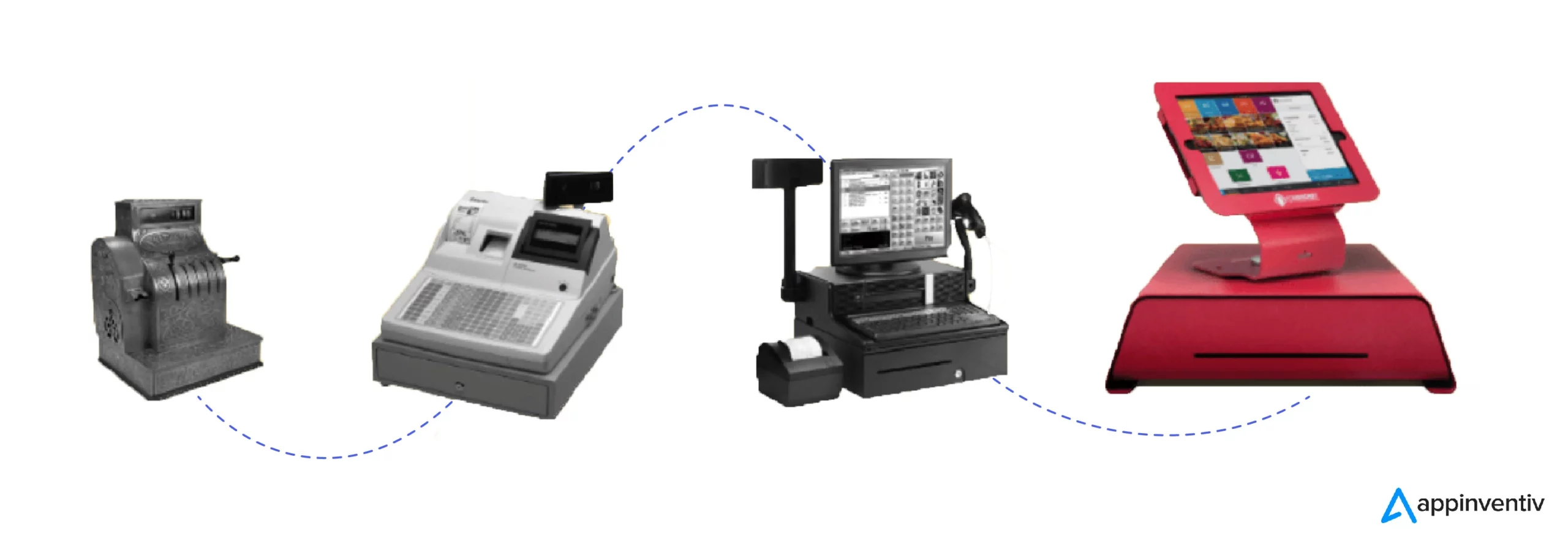
The two primary categories of POS software available today include on-premise POS and cloud-based POS systems. Every type has advantages and disadvantages. Purchasing a restaurant POS system is a huge investment. Therefore, it makes sense that restaurant owners would fret about selecting a restaurant POS system. It should be done without careful consideration of all the available options.
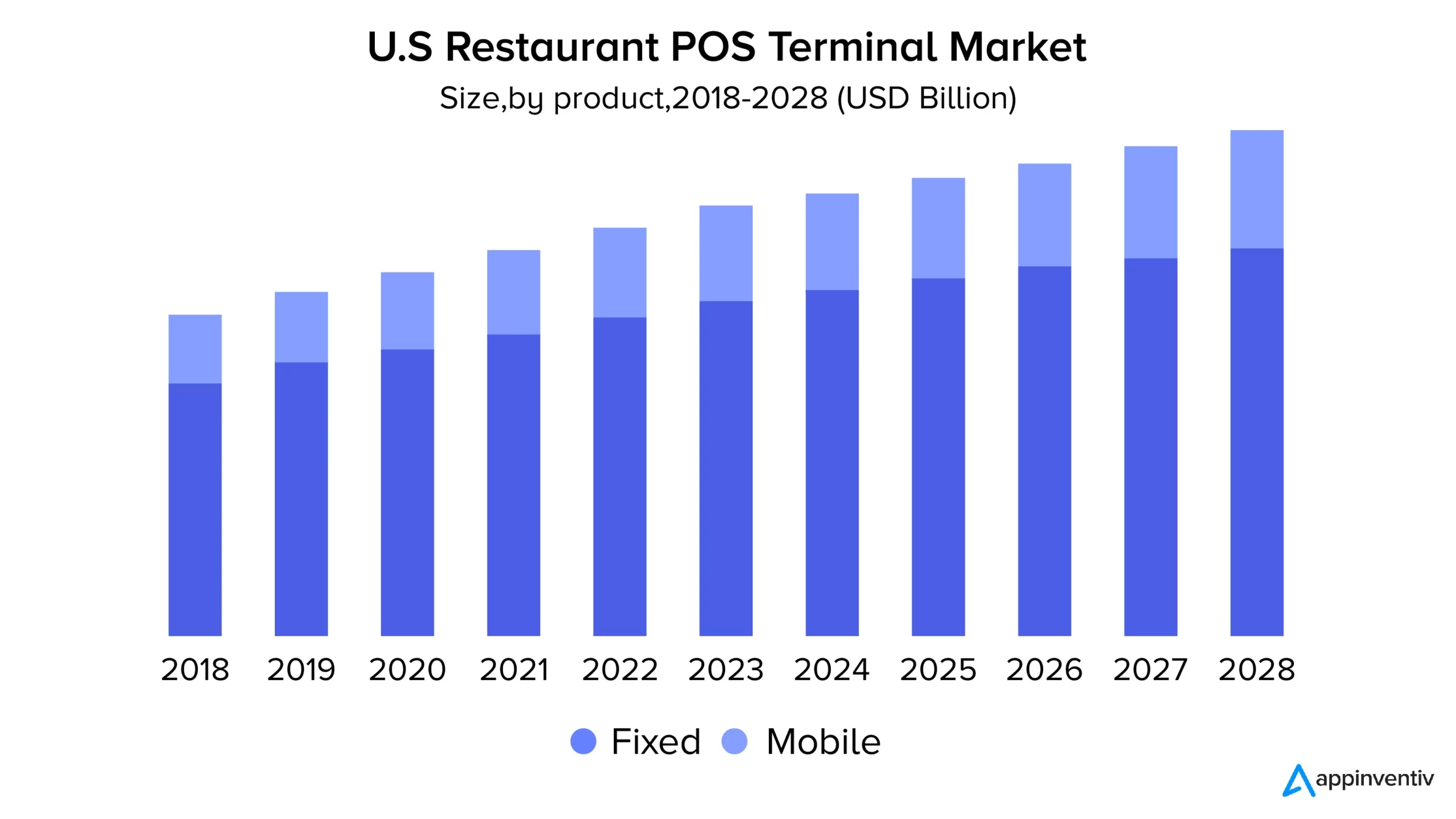
The number of features a POS has determines which one to choose. This article will outline the key distinctions between cloud-based and legacy point-of-sale systems (cloud POS vs legacy POS) to assist you in selecting the best management system for your restaurant. However, let’s first examine what each of these POS systems is.
What is a POS System in a Restaurant?
It is a question you should be seeking an answer to if you’re a newcomer planning to operate a restaurant in the current technological era. A restaurant point of sale system, often known as a POS system, functions like a command center by seamlessly integrating and optimizing your front, kitchen, and back-office activities into one location.
Point-of-sale software offers real end-to-end solutions for business owners looking to up their game in the hospitality industry. The best restaurant POS systems benefit you with features like intuitive table management, online booking, payment services, real-time sales reporting, and powerful customer relationship management (CRM) techniques, to name a few.
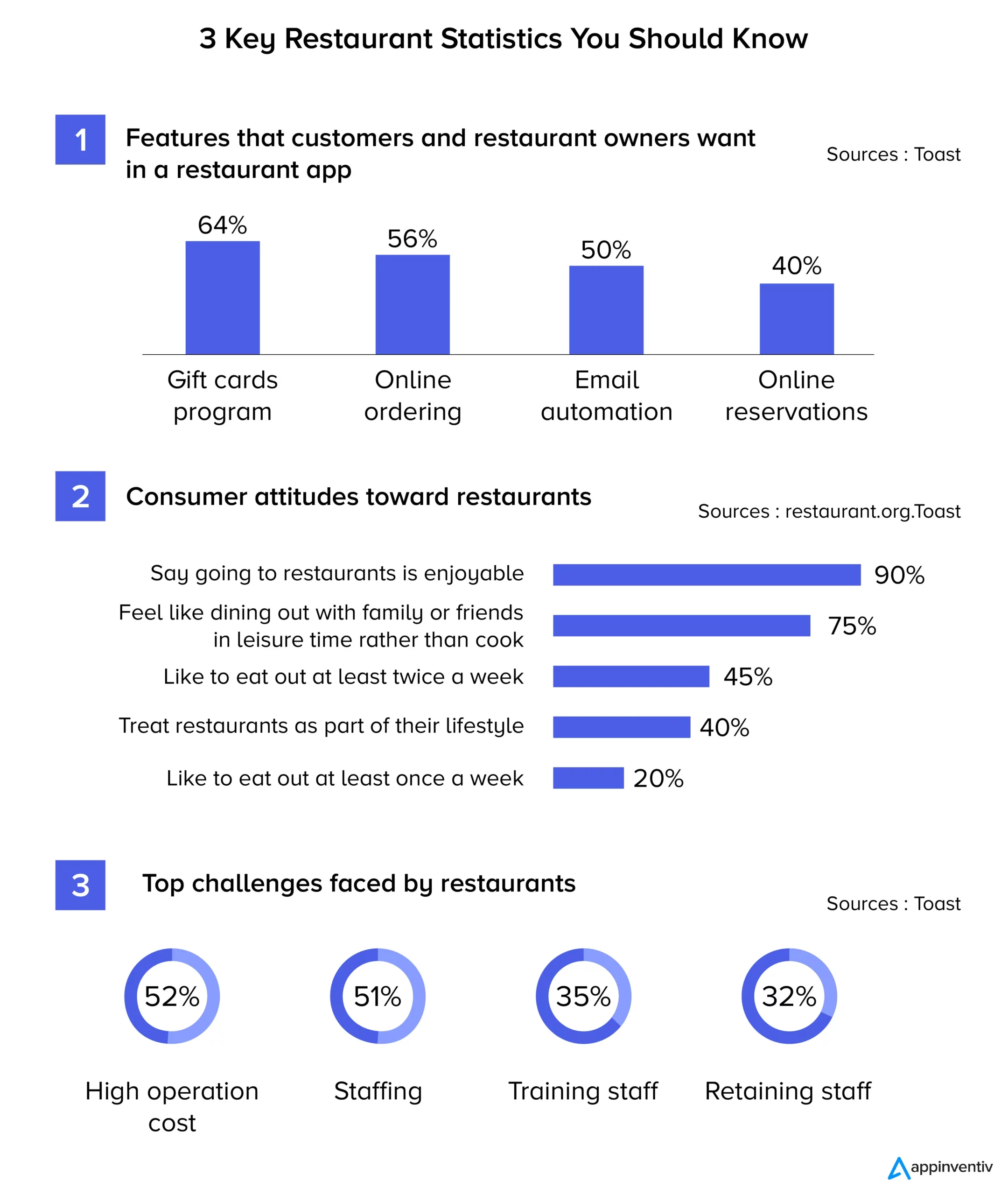
What is a Cloud-Based POS?
Cloud-based POS is fundamentally Software as a Service (SaaS). It allows information to be stored and retrieved from a remote server rather than being stored on local computers. All that it requires to function is a live internet connection.
In layman’s terms, it means that the whole database of information, including the daily transaction reports, inventory data, and customer data, is accessible online with a cloud-based restaurant POS system.
Restaurant management via the cloud POS is accessible from anywhere and is not location-dependent for restaurants. Cloud services are also scalable, making it simple to add new features to them.
The market for cloud POS systems is anticipated to reach $3.73 billion by 2023, according to Markets and Markets analysis.
What is a Legacy POS?
Typical restaurant POS systems, usually referred to as legacy POS systems, have long dominated the restaurant industry. These programs use a private internal network and local servers to save your data locally.
Staff members have traditionally utilized them to process restaurant billing invoices and produce KOTs (Kitchen Order Tickets). These systems are afflicted by the hazards of data loss, high initial costs, data security problems, data accessibility problems, and the requirement for ongoing manual data uploading.
It is comparable to downloading movies from OTT services as opposed to streaming them online. Family images saved to the desktop of your home computer—which is not available anywhere through the internet—are another example of an on-premise POS system.
Cloud POS vs Legacy POS System
Now that you are familiar with the two systems, we can move on to discuss the more crucial topic—what the differences between them mean for you and your company. Here are the main distinctions between a legacy POS system and a cloud-based POS system.
Data Storage:
| Legacy POS | Cloud-based POS |
|---|---|
| The information is stored locally in the establishment on the computers. | In contrast, data is saved in the cloud for cloud-based POS systems. Microsoft Azure and Amazon Web Services are the two most well-known. |
Accessibility:
| Legacy POS | Cloud-based POS |
|---|---|
| You must always be physically present in the restaurant near the computer to access the system, enter new data, manage product data, and examine sales reports because the data can only be viewed on-site. | Since the data is saved on the cloud you can access data whenever and wherever you are. You can check the business performance from your home using an internet-connected device, such as a PC, smartphone, or laptop, so you don’t have to be present in the restaurant. Since cloud-based POS can be accessed from any location with an internet connection, it is more accessible than on-premise POS.Additionally, cloud POS offers convenient mobile access, which is significant in today’s society. |
Pricing:
| Legacy POS | Cloud-based POS |
|---|---|
| Legacy POS has a one-time license fee, which is quite expensive. Investing a sizable amount of money upfront is riskier than paying monthly since technology is constantly evolving and the program may quickly change and deteriorate. | Cloud POS services typically have reduced monthly subscription fees that you can keep paying continuously. |
Updates:
| Legacy POS | Cloud-based POS |
|---|---|
| Whenever a software upgrade or service is required for a traditional POS system, technologists must visit the location and program the upgrade procedure. You can’t do frequent update processes on legacy POS systems because it takes a lot of time to update them manually. | The POS vendor handles the upgrades automatically and remotely for a cloud-based restaurant POS system, which means that no tech professional has to visit your store to update the system manually. Additionally, the system is frequently updated in real-time so that you can always make effective use of all the features immediately following the updating procedure. |
Security:
| Legacy POS | Cloud-based POS |
|---|---|
| Data from a legacy POS system can only be accessed locally unless a terminal server is installed. The restaurants are responsible for data security, and if it isn’t adequate, it might put the data at risk. Data cannot be recovered if the servers malfunction, crash, get hacked, or are stolen or damaged. | Data stored by cloud-based POS systems is accessible from anywhere in the world as it is stored online. The POS vendors, who have the resources and know-how to store the data safely, are in charge of security. Data will be automatically backed up in the cloud and is simple to restore in the event of a system crash. Everything is stored in the cloud with Cloud POS, so the data cannot be lost. |
Capabilities for integration:
| Legacy POS | Cloud-based POS |
|---|---|
| It might be challenging to combine legacy POS systems with different types of software and tools. The lack of integration capabilities restricts the system’s potential to grow and add additional new features. As a consequence, it is challenging for you to modify the system to suit your company’s requirements. | In cloud-based POS, you can combine it with other useful functional modules and applications to improve it, coordinating a variety of jobs on a single machine. A cloud-based restaurant POS system, for instance, enables you to communicate with your online shops via social media or e-commerce platforms. |
Scalability:
| Legacy POS | Cloud-based POS |
|---|---|
| On-premise POS systems are only permitted to be utilized in one location. You would need to buy new systems and hardware to run them if your restaurant wanted to open a new branch. | With no need for proprietary hardware, cloud POS subscriptions can be upgraded or reduced according to the demands of the business, from launching new branches or temporary pop-locations. |
Hardware:
| Legacy POS | Cloud-based POS |
|---|---|
| Legacy point-of-sale systems are made up of heavy gear that is difficult to install. They take up a significant amount of space on the counters and are stationary, unlike cloud POS. | Cloud POS can be used with a multitude of browsers and is independent of hardware. The POS system is portable and usable by numerous users thanks to its lack of hardware dependency, allowing them to accept table orders using tablets and smartphones. Additionally, the lack of hardware allows for a quick and inexpensive system installation. Being independent of hardware boosts the utility and convenience of POS systems. |
Cloud POS vs Legacy POS – Which One to Choose?
When it comes to cloud-based POS system vs traditional POS, we know that adopting a flexible cloud restaurant POS system is essential for restaurants to manage different operations and branches properly. Restaurants are switching from POS systems to cloud POS solutions as technology advances.
Even though a cloud POS needs an internet service to function, the range of features it offers is significantly greater than that of conventional POS systems. After comparing the two systems, it becomes clear that a cloud-based POS system for restaurants offers more advantages than a traditional POS system.
One of the top POS technology developments right now is cloud-based POS. Currently, 61% of all fast-food restaurants in the US use POS systems that are cloud-based. In addition, new sellers need to utilize cloud-based POS in place of conventional POS systems in 60% of cases.
Restaurant owners have a greater chance to optimize operations with cloud POS systems than with legacy POS systems. All restaurant formats can benefit from end-to-end cloud restaurant management provided by a cloud POS system.
[Also Read: How to build an online cloud kitchen platform like Kitopi?]
Benefits of Cloud-based POS Systems
Cloud-based POS has a wide range of additional essential functions that outpace those of traditional POS systems. Here are some of the benefits of cloud-based POS system for your restaurant:
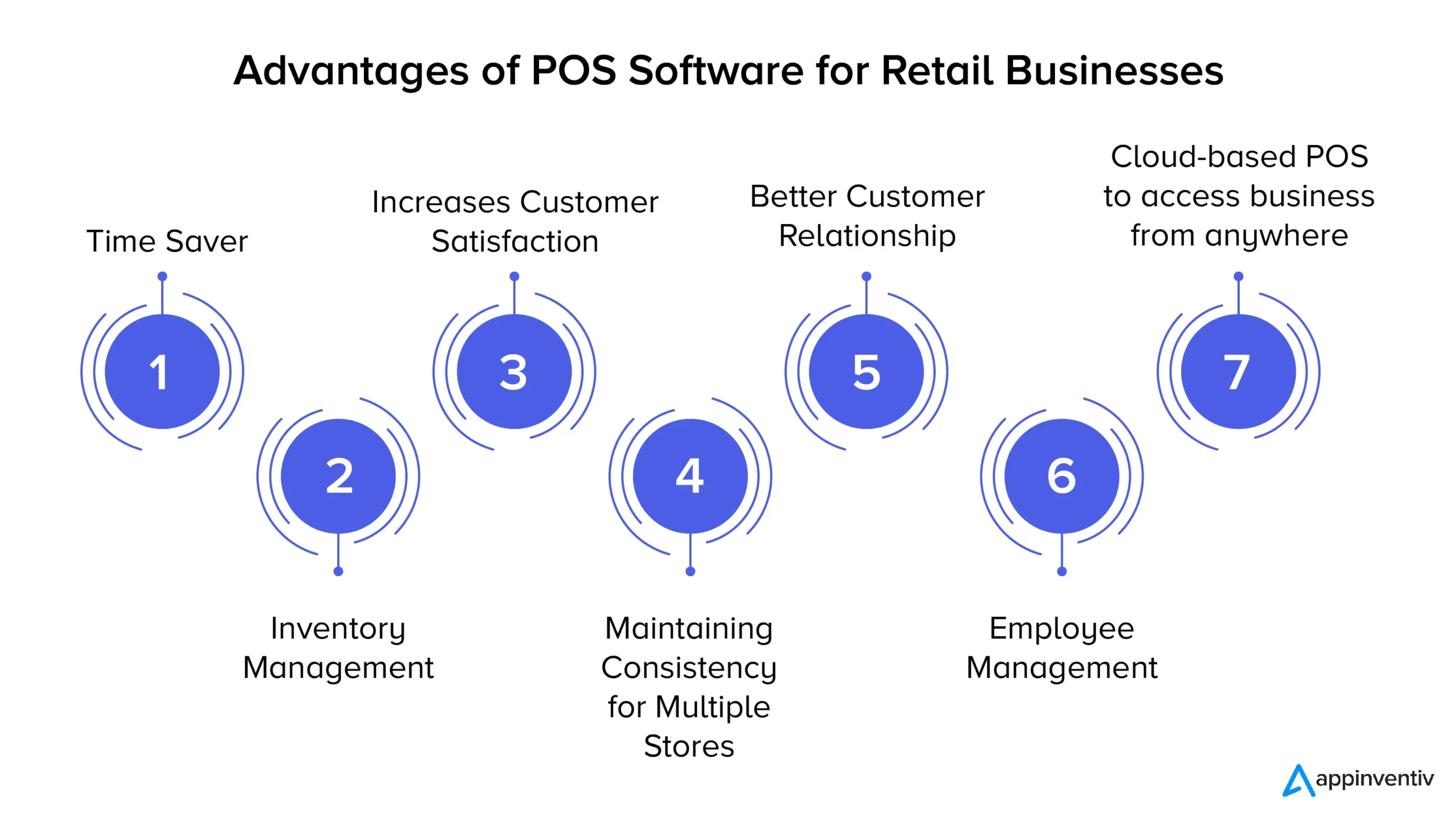
- The management can keep track of the restaurants’ daily, monthly, weekly, and annual sales, thanks to the extensive analytics and item- and ingredient-level statistics.
- Based on predefined events like birthdays and other occasions, the CRM module regularly offers discounts and deals to customers and centrally saves their data. Customer relationship management is a strategy to strengthen your bonds with your clients by monitoring their dining and shopping behaviors. As a result, you will be able to determine what marketing campaign to launch since the cloud-based POS system for restaurants allows you to gather both basic customer information and data on past purchases.
- The stock and inventory module keep tabs on the stock that is still available and notify the management when it’s time to refill. It may aid you in avoiding excessive spending. Some POS systems even allow for direct inventory reordering. They can assist you in keeping track of your supply, monitoring inventory, and locating products with strong demand.
- The anti-theft module notifies the manager of any irregularities, such as unauthorized discounts, KOT reprints, employee thefts, etc.
- Payment, delivery, and other third-party applications can be easily integrated with cloud POS systems. Making the entire process, from ordering to serving and delivery, smooth for the customer can be accomplished by integrating with payment systems and various food aggregators.
- The restaurant business develops quickly. You must be able to introduce new concepts within days. Identifying and correcting underperformers is also crucial, whether through menu changes or promotions. Thanks to cloud based POS system for restaurants, you can carry out your ideas more quickly and successfully.
Challenges of Implementing a Legacy POS System
You will encounter several obstacles when implementing a legacy POS system. The following are some reasons for your consideration:
- The operating system and interface of legacy POS are no longer supported, and the software is so sluggish that it severely restricts the expansion of restaurants since it cannot expand to meet the demands of the market.
- In contrast to a contemporary POS system, which can integrate it all into one system and minimize the work of the operators, it is incapable of integrating other business functions and is only capable of billing and information storage.
- It would be challenging for you to find substitutes if the legacy system is broken or malfunctioning because the gadgets and features of legacy systems are incompatible with modern technology. Your business operations will be hampered by these constraints, so it is not worthwhile.
Ensure Your Success by Partnering with Appinventiv
A cloud-based system is your best option if you’re looking for a point-of-sale system for your restaurant. It has several benefits over a legacy POS system. So, if you are looking for the best restaurant app development services, look no further than Appinventiv.
We handle everything, including developing POS systems, inventory management software, food ordering apps, and more. Our team of professionals is committed to improving the efficiency of your daily restaurant operations and is well-versed in the technological requirements of the food service industry. Our managed cloud services simplify difficult back-end processes for your workers and improve the way services are provided in restaurants.
We have been providing state-of-the-art solutions to meet the varied needs of our clients in the restaurant industry, including Pizza Hut, Domino’s, and KFC. Please pardon the bias, but we heartily recommend our cloud POS.
Wrapping up!
The complexity of managing even one venue in the demanding field of hospitality can be intimidating. Because of this, an increasing number of restaurant owners are selecting cloud-based point-of-sale systems to streamline operations while generating income and managing customer relationships. This affordable, scalable, and sustainable solution will support the continued success of your business for many years.
We hope that this post about cloud POS vs legacy POS will assist you in finding some of the answers to your queries about both the old and new POS systems.
FAQs
Q. What is the most popular POS system for restaurants?
A. The 7 best POS systems for restaurants are:
- Best Overall: TouchBistro.
- Best for Dine-In Restaurants: Upserve.
- Best free option: Square.
- Best for Carry-Out: Lightspeed.
- Best for Bars: Revel.
- Best for food trucks: Clover.
- Best for Loyalty Features: Toast.
Q. What are the benefits of cloud-based restaurant POS software?
A. Some of the benefits of cloud-based restaurant POS software are:
- It reduces the cost of IT
- It reduces complexity
- It increases speed and agility
- It creates new revenue sources
- Cloud POS analytics aids in extracting information from data to aid in decision-making.
Q. Does a restaurant need a POS system?
A. POS system aids in optimizing restaurant operations for customers. This includes cutting down on waiting times, expediting item scanning and payment processes, etc. With these operational upgrades, diners will frequently receive better service and return to your establishment.
Q. What does a POS machine do that makes restaurants more efficient?
A. Below mentioned features makes POS machine more efficient for restaurants:
- Accelerates service delivery
- Automates processes
- Identifies popular products
- Improves client interaction
- Saves time
- Provides useful business insights
- Decreases errors and theft
- Manages staffing needs


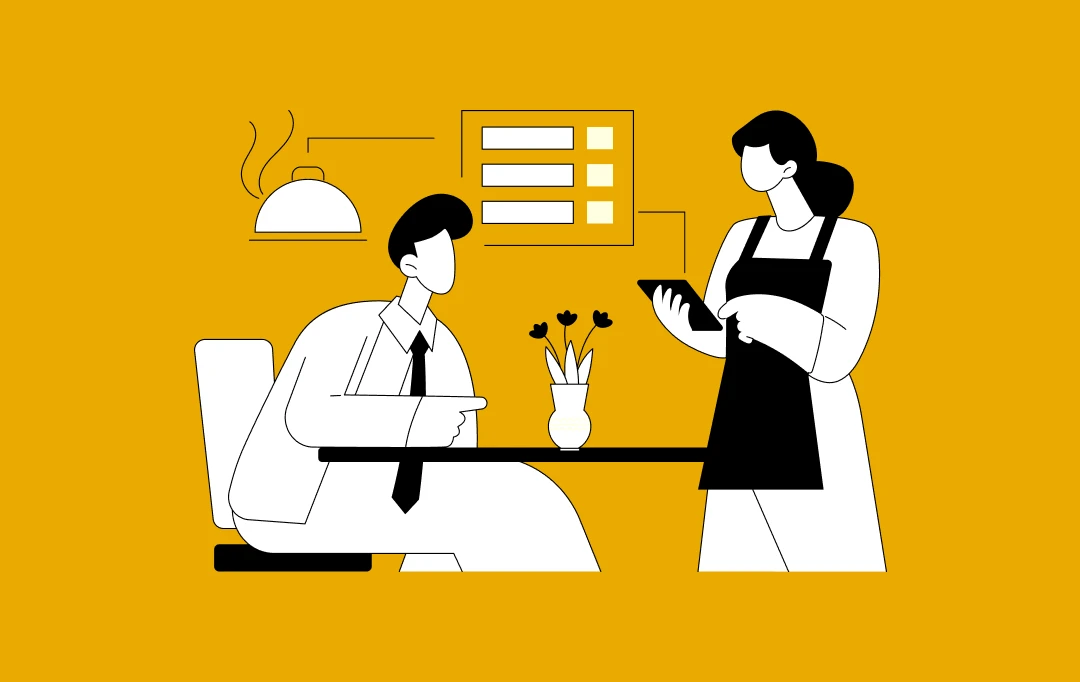
How Much Does It Cost to Build a Restaurant Reservation App Like OpenTable?
The global food service market’s gonna hit a whopping $4.43 trillion by 2028, with a crazy growth rate of 9.9% from 2021 to 2028. That’s all the reason you need to give your restaurant biz a serious kickstart with a killer restaurant reservation app. (Statista) The biggest problem for diners is that they must manage…
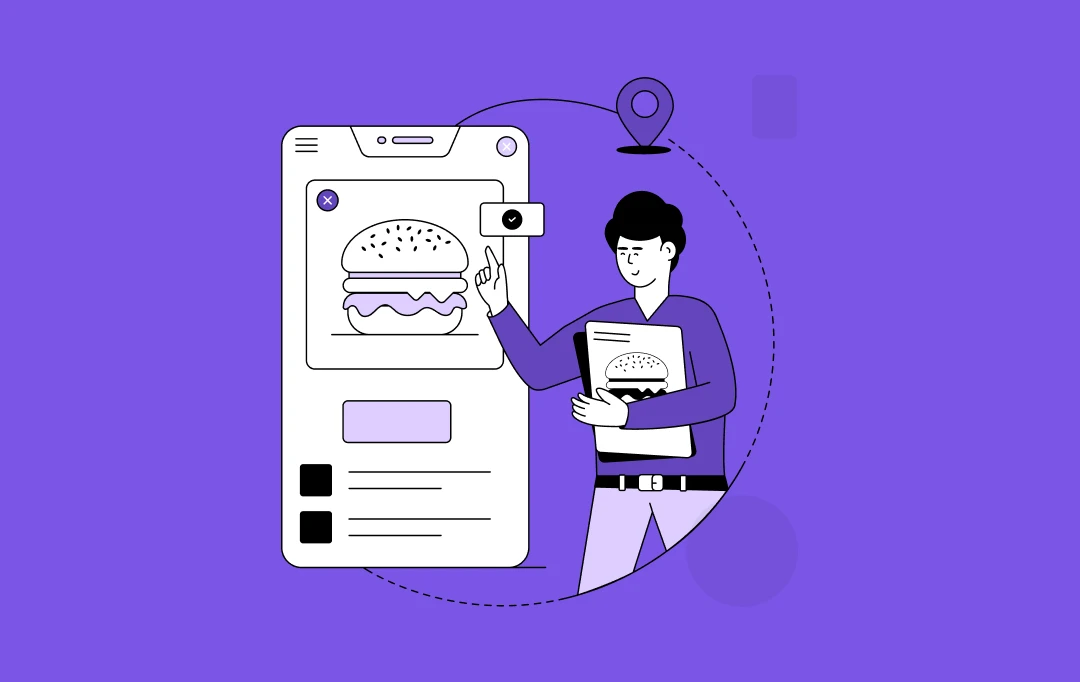
How Much Does it Cost to Build a Food App Like Grill'd in Australia?
The surge in demand for food delivery apps is undeniable, reflecting a shift in consumer behavior toward convenience and instant gratification. As more people seek hassle-free ways to enjoy their favorite meals, these apps have risen to the occasion, not only meeting this demand but also overcoming significant challenges in the process. By addressing issues…

How Much Does It Cost to Build a Food Delivery App Like HungerStation?
The food delivery app market in Saudi Arabia has been booming in recent years. Statista indicates the online food delivery market in Saudi Arabia is projected to reach $15.13 billion by 2029. This growth is fueled by increasing urbanization and a tech-savvy population that values convenience. With more smartphones and internet access, people are increasingly…




